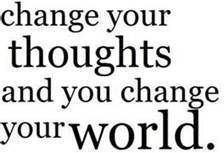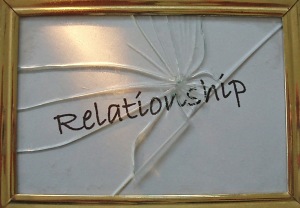Creating psychological distance within the comfort of closeness is essential, per Esther Perel, for sustaining desire in a loving relationship. Esther Perel is one of the world's leading psychotherapists working with couples. This is an EXCELLENT article for those who believe two must become one in a relationship. TOO MUCH CLOSENESS IMPEDES DESIRE. This can be a difficult concept for many couples to grasp.
3 SIGNS YOU COULD BENEFIT FROM COUPLES COUNSELING
- You both are feeling ‘unheard’ and having trouble seeing the issue or situation from your
 partner’s point of view. If there’s lots of conflict in your relationship about what seems like everything, even the little stuff, consider that it is difficult to get to the place where you can productively consider potential solutions to your problems if neither of you feels like the other person hears where you’re coming from.
partner’s point of view. If there’s lots of conflict in your relationship about what seems like everything, even the little stuff, consider that it is difficult to get to the place where you can productively consider potential solutions to your problems if neither of you feels like the other person hears where you’re coming from. - When there has been emotional or physical infidelity. You may think you can work through this on your own, but a professional can create a meaningful framework for the recovery process, provide a safe space for each individual to be heard, help redefine the relationship, and create a narrative lending an understanding as to how the relationship got to a place where it became vulnerable to the affair in order to recognize the first signs in the future and innoculate the relationship against any potential threats.
- When you are having difficulty adjusting to a major life transition, such as parenthood, launching of children, or dealing with the problems and responsibilities associated with aging parents. Let’s face it, when our lives get turned upside down, and what we once knew to be ‘normal’ seems so far away, it takes some adjusting, not only as an individual, but also as a couple. Our ‘normal’ patterns of interaction and reaction may not make sense given the new circumstances.
~Lisa
CHOICES
 Still looking for one word for 2014? Consider the word 'CHOICES'. Stuck in a personal rut or unhealthy relationship cycle? We all have CHOICES about how we think about our situation, what we do about it, and how we respond to those around us. As humans we are wired to pay attention to the negative. Think about what would happen to our ancestors if they weren't hyper-sensitive to any potential threats (negatives). They'd be wiped out by a saber tooth tiger or other unforseen threat! However, if they passed up a watering hole or fruit tree (both positives), chances are they would pass another at some point, so it wasn't as critical to notice the positive around them. Paying attention to the negative was critical while noticing the positive wasn't beneficial when the name of the game was survival. This is where the work comes in for those of us whose lives aren't in daily jeopardy, and who desire to live happily. YOU HAVE A CHOICE AS TO WHAT YOU PAY ATTENTION TO. If you are new to this process, in the beginning stages paying attention to the positive takes commitment and perseverance. It's not natural. Your brain isn't wired to pay attention to the positive. With time and practice, paying attention to the positive can become second-nature, and when it does, how you view yourself and the world around will shift, and your life will become the life you envision it to be.
Still looking for one word for 2014? Consider the word 'CHOICES'. Stuck in a personal rut or unhealthy relationship cycle? We all have CHOICES about how we think about our situation, what we do about it, and how we respond to those around us. As humans we are wired to pay attention to the negative. Think about what would happen to our ancestors if they weren't hyper-sensitive to any potential threats (negatives). They'd be wiped out by a saber tooth tiger or other unforseen threat! However, if they passed up a watering hole or fruit tree (both positives), chances are they would pass another at some point, so it wasn't as critical to notice the positive around them. Paying attention to the negative was critical while noticing the positive wasn't beneficial when the name of the game was survival. This is where the work comes in for those of us whose lives aren't in daily jeopardy, and who desire to live happily. YOU HAVE A CHOICE AS TO WHAT YOU PAY ATTENTION TO. If you are new to this process, in the beginning stages paying attention to the positive takes commitment and perseverance. It's not natural. Your brain isn't wired to pay attention to the positive. With time and practice, paying attention to the positive can become second-nature, and when it does, how you view yourself and the world around will shift, and your life will become the life you envision it to be.
Happy New Year,
Lisa
A Nation of Cutoffs
According to Murray Bowen, cutoffs develop as an attempt to adapt to intense anxiety in a relationship. Have you ever said to someone you're in a relationship with, "I'm done. I don't need you anymore. It's just too hard to deal with you?" Cutoff is a distancing posture carried to the extreme. In some cases, cutoff may be the only viable answer, such as in an abusive relationship. Sometimes cutoff is subtle, in the form of emotionally removing oneself from the relationship, but still keeping in contact. Whatever the form of the cuttoff, most of the time when we say, "I'm done", we are far, far from actually being done. The intense fusion to this other person doesn't just go away. And in fact, it seeps into other relationships.
relationship with, "I'm done. I don't need you anymore. It's just too hard to deal with you?" Cutoff is a distancing posture carried to the extreme. In some cases, cutoff may be the only viable answer, such as in an abusive relationship. Sometimes cutoff is subtle, in the form of emotionally removing oneself from the relationship, but still keeping in contact. Whatever the form of the cuttoff, most of the time when we say, "I'm done", we are far, far from actually being done. The intense fusion to this other person doesn't just go away. And in fact, it seeps into other relationships.
America has been called a nation of cutoffs, since most of its inhabitants were immigrants who often left important others across the sea. Culturally, cutoff is a pattern seen in American families, and is often considered a desirable state of affairs. Children grow up and leave home, and often never 'emotionally' return, thus severing what were once emotionally meaningful relationships, only visiting on holidays or when obligated.
Cutoff is a temporary fix. Cutoff can initially ameliorate intense feelings of anxiety, but over time it will have the opposite effect. People involved in cutoff relationships will often develop an intensification of feelings of depression and anxiety. A history of cutoff in the family of origin can be linked with difficulties in current relationships, including the workplace, friends, and family.
Rather than focusing on the issues that lead to the cutoff, try focusing on the pattern. The distancing pattern may play out several times a day. When we become familiar with our own patterns, we are in a better position to recognize the anxiety that is driving these patterns. Working with the anxiety itself may be more productive than trying to change a distancing pattern. And, as with all patterns, asking ourselves the following three questions might be helpful:
- "HOW DID I CONTRIBUTE TO THIS CUTOFF?"
- "WHAT IS MY ROLE IN THESE REPEATED PATTERNS?"
- "IS THERE ANYTHING I COULD BE DOING TO LOWER MY EMOTIONAL INTENSITY?"
Working to resolve cutoffs with the family of origin is always helpful. Cutoff cannot be changed unless someone steps up and takes responsibility for for his or herself.
(Adapted from Roberta Gilbert's 'Extraordinary Relationships', 1992)
~Lisa
Emotional Flooding 101

We've all been there! Anger. Increased heart rate. Increased blood pressure. The secretion of adrenaline. Any kind of 'threat' (beit hunger or an emotional violation) creates the same physiological response as if someone were threatening you physically. The logical, thoughtful part of your brain, the pre-frontal cortex, shuts down and the amygdala kicks in. The amygdala doesn't care what you think. There's no time for that! Its role is to get you the heck outta the situation (fight, flight, or freeze)! YOU CAN'T THINK CLEARLY OR HEAR WHAT YOUR PARTNER IS SAYING.
The solution: TAKE A 20-30 minute break. Don't ruminate about whatever the issue was during this break. Practice SELF-SOOTHING. Agree to resume your talk later.
~Lisa
Are People Who Have Affairs LIARS?
"Oh what a tangled web we weave...."
 Are people who have affairs LIARS? How could it be otherwise?
Are people who have affairs LIARS? How could it be otherwise?
Discovering a trail of sexual encounters or emotional attachments is painful, but the lying and deception are the most appalling violations.
If you are married to someone who has been having an affair (either physical OR emotional), you have to be able to decipher if the lying is a consequence of this particular situation or an embedded personality trait that is a matter of character.
Lies of commission or lies of ommission? Either way they have a way of scaffolding.
Unfaithful partners report they are protecting their partners from the pain, but in actuality, they are protecting themselves from exposure and having to end the affair.
When the affair is discovered, COMING CLEAN and being upfront about the extent of the affair is the only way for the betrayed spouse to begin recover. FULL DISCLOSURE of significant facts needs to happen in the beginning stages of recovery.
~Lisa
Is it "BUSINESS TIME" at your house tonight?
BEST. VIDEO. EVER... Are you wearing your BUSINESS socks this Valentine's Day? And remember, "two minutes in heaven is better than one minute in heaven...".
Intentionally yours,
Lisa
Men~ Time to get your dusting on...
Women who report a fair division of housework were happier in their marriages than women who thought their husbands didn’t do their fair share. Wives also spent more quality (wink, wink) time with their husbands when they thought the housework was divided fairly.

While men's participation in household chores has risen dramatically, unfortunately, it still lags behind the participation of women.
If asked right now, would both you and your partner agree that housework is equally divided? Who has the better deal?
Intentionally yours,
Lisa
TED Talk: What FEAR can teach us, by Karen Thompson Walker
That's right, FEAR doesn't have to be always be negative. I tell my clients to look at all emotions (the good, bad, and the ugly) as their EMOTIONAL GPS. Each emotion is a guide as to what we want more of or what we should steer clear of. However, our emotions can mislead us. Sometimes we respond automatically based on past experiences which is often not helpful in the current situation. We can learn a lot about ourselves when we SIT WITH OUR FEAR.
Is it time for YOU to get curious about the story you are telling yourself and learn to read this story in a more helpful, productive, and less emotionally-reactive way? Marriage and Family Therapists can help you explore your sense of FEAR, understand what layers are not useful, and translate your story into preparation and action.
Intentionally yours,
Lisa
The Stress of Infertility

The whirlwind of emotions experienced by couples dealing with infertility can leave the individuals feeling like they are losing control of themselves and their relationship. Exploring your emotions, establishing boundaries, and discussing how you and your partner can support each other during this difficult time can help provide you both the courage, strength and clarity to make the choices right for you both.
Intentionally yours,
Lisa
5 Ways Towards a New Way of BE~ing for 2013:
 5 Ways Towards a New Way of BE~ing for 2013:
5 Ways Towards a New Way of BE~ing for 2013:
- ENVISION what you would like to be "doing different". Write down the specifics. The more details you add, the more tangible it becomes. As a suggestion, come up with a word and use this word as a template for all areas of your life.
- DO IT. Jump on in. Don’t think too much about it. Consider it an experiment in living... it can be tweaked along the way, and if you find yourself reverting to old patterns, direct yourself back to the NEW PATTERN you are establishing, and understand that although it might seem unfamiliar for a bit, with enough practice this new pattern will become your new normal.
- COLLABORATE. Get others involved… tell them what you are envisioning, and let them know ahead of time how they can support you.
- THINK OPTIMISTICALLY. And, if you find yourself with a discouraging thought, cut yourself some slack… acknowledge that it is just that… a thought. You are not your thoughts, and you have the ability to change them.
- Take an ordinary, everyday situation, SLOW DOWN AND STOP each day and OBSERVE without judgment. BE PRESENT. CONNECT…. With the moment, with your peoples, and thus connect with the true you.
Intentionally Yours in 2013,
~Lisa
Just YELL louder, right?
"Usually what people do in a relationship crisis is more of the same thing they have been doing, only more intensely and more anxiously."
-Roberta M. Gilbert, M.D., taken from 'Extraordinary Relationships- A New Way of Thinking About Human Interactions'.

If your partner doesn't understand your argument, you must not be yelling loud enough, right? "Oh, I see what you're saying now, thank you for yelling louder so that my pea-brain was finally able to get it. Thank you for finally enlightening me! I am so lucky I am with you, sweetheart! You always set me straight." Is this how it goes for you? My guess is that the more you yell, the more your partner digs his or her heals in to his or her position and the two of you become 'polarized' in your views. When anxiety decreases sufficiently, thoughtfulness can be applied, and you each can begin to think about the problem and your contribution. A pattern in the relationship is revealed that may not be serving either of you well, but without interruption, the pattern can take on a life of its own.
YOUR OWN PART IN THE PATTERN IS THE ONLY PART YOU HAVE THE POWER CHANGE.
That's right. Trying to change your partner is going isn't going to get you anything but more frustration. Marriage and family therapists are trained to work with you and your partner, or you as an individual, to interrupt these unwanted patterns and get you more of you want in your relationship.
Intentionally yours,
Lisa
Family and Emotional Reactivity
"Emotional reactiveness in a family, or other group that lives or works together, goes from one family member to another in a chain reaction pattern." Murray Bowen, 1971

Have you noticed how when one family member becomes anxious and upset about something the feeling reverberates through the entire family? Your family is an emotional system. In order to understand what's going on with any particular family member, the entire relationship system needs to be undestood as completely as possible.
Marriage and family therapists are specifically trained in systems thinking and can help you understand how anxiety may be flowing through your family system.
Intentionally yours,
Lisa
"Just Friends" ???

ATTRACTION. OPPORTUNITY. Maybe it starts with conversations at the water cooler. Then it turns into weekly or maybe even daily lunches. There’s nothing wrong with that, right? After all, you work together. Pretty soon you find yourself looking forward to seeing this person… there might even butterflies involved. It’s something to get excited about. Mondays aren’t so bad anymore. Then, the two of you start texting, all the while telling yourself, “I’m happily married, so it’s okay. This is harmless… We’re just friends…” SECRECY. JUSTIFICATION. These thoughts serve to further your relationship with this other person while, more importantly, NOT strengthening your relationship with your partner. Secrecy and justification further EMOTIONAL INTIMACY and fuel SEXUAL CHEMISTRY both of which send you on a trajectory for something regrettable...
FACT: According to Shirley Glass in her book, “Not Just Friends”, At least one or both parties in 50% of all couples will break their vows of exclusivity to one another sometime in the life of their relationship. 50%!! So, if you are absolutely sure your relationship is foolproof, think again.
The majority of affairs that happen today have the following notable characteristics:
- The individuals involved started as “just friends.”
- Today’s affairs do not occur because the betrayer is out “philandering”, rather today’s affairs do not have to be sexual, and many aren’t (both online AND in person affairs).
- Affairs ARE happening in loving, dedicated relationships.
- Emotional intimacy is the first warning sign of impending betrayal.
- In the majority of affairs happening today, the unfaithful partners met their affair partners at work (the second type of occurrence is with a friend).
Not only are affairs happening everywhere, but they’re occurring with deep, emotional connections. OUCH. Once affairs are discovered, prior beliefs about the relationship are shattered. Trust has been stomped on and bruised until barely recognizable. Both partners are left confused, shaken, and fragile. The betrayed partner may develop symptoms similar to Post Traumatic Stress Disorder, including flashbacks, rumination, obsession, and physical symptoms. If the affair partner is a colleague of the involved partner, there may be complications with how to move forward. The involved partner may experience depression and a sense of loss. Like it or not, these feelings are real, and without having the space to process, the involved partner will have difficulty recovering, including a sense of resentment believing, “how I feel doesn’t matter.” Couples therapists can help the willing couple recover from the trauma of infidelity, understand how their relationship became vulnerable to the affair, and integrate and apply this knowledge towards making the relationship stronger than before.
And soooo, as one half of a committed relationship, what can YOU do to avoid becoming a statistic?
- BOUNDARIES. BOUNDARIES. BOUNDARIES. Consider them. Talk about them with your spouse. Consider online boundaries as well. Be aware of boundaries, and don’t let them fool you….
- Trust your gut. Don’t ignore that little voice in your head that tells you, “My husband doesn’t need to know… this is harmless.” If he doesn’t need to know, that usually means he does! Having to describe the relationship as “just friends” probably means it’s more…
- Know that attraction is normal. We’re all living, breathing, sexual beings! But, just because you feel it, doesn’t mean you have to act on it, right? Just because you are attracted to someone else doesn’t mean you are with the wrong person. Don’t let yourself fantasize about what it would be like to be with another person. Affairs begin in the mind. To be committed to someone means you make that person a priority and filter out ‘distractions.’ If you need help with focusing your attention constructively, marriage and family therapists can help!
- Avoid risky situations. (Back to boundaries because this is soooo important). IF crossing boundaries has been a challenge in the past, then consider not flirting with anyone but your partner. While flirting can seem natural and harmless, for many it’s the gateway to the next step. If you are in a committed relationship, and you find yourself in a close friendship with someone of the opposite sex (or the same sex in the case of gay and lesbian relationships), be aware of how easily your seemingly platonic relationship could imperceptibly cross the line. And, if you find yourself comparing your committed relationship to your friendship, you might already be sliding down that slippery slope.
If your committed relationship has fallen victim to infidelity, although you may feel completely solo in your feelings and at a loss as to how to move forward, know that marriage and family therapists are able to help committed, dedicated couples rebuild their relationships to create a stronger, more intimate relationship than ever before.
Intentionally yours,
Lisa
GREAT TED talk by Susan Cain on "The Power of Introverts"...
Thanks to my friend John for suggesting this link as a follow-up to last week's posts! Susan Cain, author of 'Quiet', explains in this video how we live in a society that promotes and rewards extroverts. This video explains why fostering environments in schools and workplaces that encourage introverted behavior (as well as extroverted) is so important. Take a peeksy... this'll be my final posting on the topic of extroversion/ introversion. ;)
"There's zero correlation between being the best talker and having the best ideas.” (Susan Cain)
http://www.ted.com/talks/lang/en/susan_cain_the_power_of_introverts.html

Do you agree??
Intentionally yours,
~Lisa
And not to leave the EXTROVERTS out, as we all know they love the attention...

Ring a bell with anyone?? Don't be afraid to 'speak'... you know you wanna!
Intentionally yours,
~Lisa
Introverts are all the buzz these days...

I always thought introverts were the quiet, shy ones who sat in the corner and preferred a book to a juicy conversation with a group of friends, but I've recently heard that introversion versus extroversion is more determined from where a person derives their personal energy.... solitude (introverts) or by talking with and being around others (extroverts). As a teen and young adult, I would have easily placed myself in the extrovert category, but when I consider the above mentioned thought, I'd say I'm more of an introvert... maybe even an 'ambivert'?? Sure I enjoy hanging with my fam and my home girls, but when it comes to re-energizing, I NEED my alone time... quiet reflective moments to process and integrate what's going on in my life. Is it possible to change over time or do you believe this is an inherent personality characteristic? Take this quiz to help determine where you fit on the spectrum, and then consider how your type affects your relationships with others. Is your partner the same type as you or different?? Your children?? Understanding where you're each coming from can help immensely. And (surprise, surprise), marriage and family therapists can help you determine how being different or the same from those close to you can affect your interactions as well as offer tools for how to apply this knowledge to better your relationships!
Intentionally yours,
~Lisa


